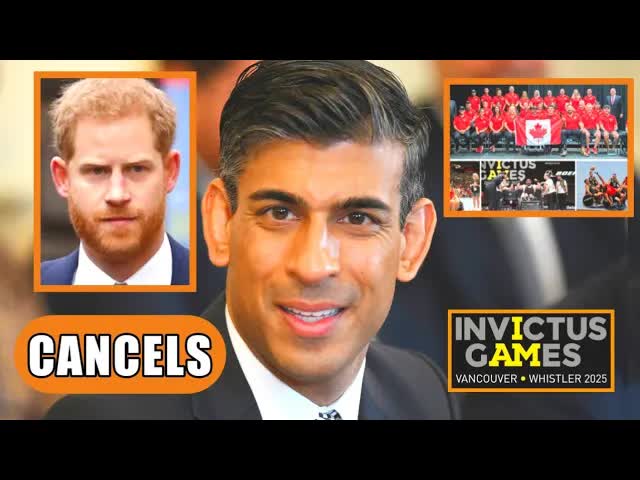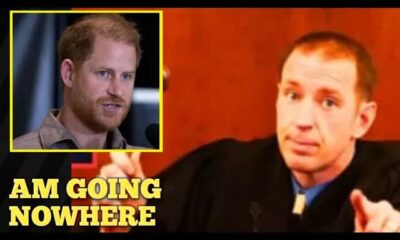The News
Prince Harry’s Last-Minute Withdrawal Shakes Invictus Games Celebration
In a surprising turn of events, Prince Harry, the Duke of Sussex, has opted out of attending the UK's 10th anniversary celebration of the Invictus Games.
His last-minute decision has sent ripples of concern through both the veteran community and the royal family.
Citing security issues, Harry's absence casts a shadow over an event he founded, igniting speculation about his connection to the British public.
While an official statement from Harry's spokesperson emphasizes safety as the reason for his withdrawal, many are left wondering if there's more beneath the surface.
Recent tensions between the Duke and Duchess of Sussex and the British tabloids may have created a hostile environment that Harry fears could lead to public jeering at the Games.
This potential for a negative reception seems to have played a crucial role in his choice to stay away.
The Invictus Games, established in 2014, is a Paralympic-style sporting event designed for wounded and disabled veterans.
It stands as one of Prince Harry's most significant achievements, inspiring countless veterans worldwide and providing a platform for him to advocate for their causes.
His absence from this milestone celebration raises serious questions about his long-term commitment to the Games and the veterans they support.
Moreover, some might interpret Harry's decision to prioritize his fears over his dedication to veterans as a sign of weakness.
After all, facing public disapproval is part and parcel of royal life.
As a former senior royal, one would expect him to handle potential criticism with resilience and grace.
Instead, his withdrawal suggests he may be struggling with the prospect of negative reception.
The broader context of Harry and Meghan's relationship with the British public cannot be overlooked.
Their choice to step back from royal duties sparked mixed reactions.
While some applauded their quest for privacy, others viewed it as a betrayal of their royal responsibilities.
The couple's subsequent clashes with the British press only worsened their standing among the public.
In the days leading up to the Invictus Games, rumors began circulating about possible protests during the event.
Whether these rumors held any truth or were merely sensationalized by the media remains uncertain.
However, Harry's decision to cancel suggests he took these threats seriously, raising questions about his faith in the British public's support.
This fallout is likely to be far-reaching.
Many veterans who looked forward to meeting the Duke will undoubtedly feel let down.
The Invictus Games, which thrives on the spirit of camaraderie and support, will feel the void left by its founder's absence.
More critically, this incident could further strain Harry's already fragile relationship with the British public, creating a divide where admiration once flourished.
In the aftermath of this decision, discussions and analyses will inevitably unfold.
Supporters of the Duke may try to defend his actions, pointing to security concerns or framing the potential booing as a media-driven narrative.
Yet, the court of public opinion remains unconvinced, and the repercussions of his withdrawal will likely linger.




































































